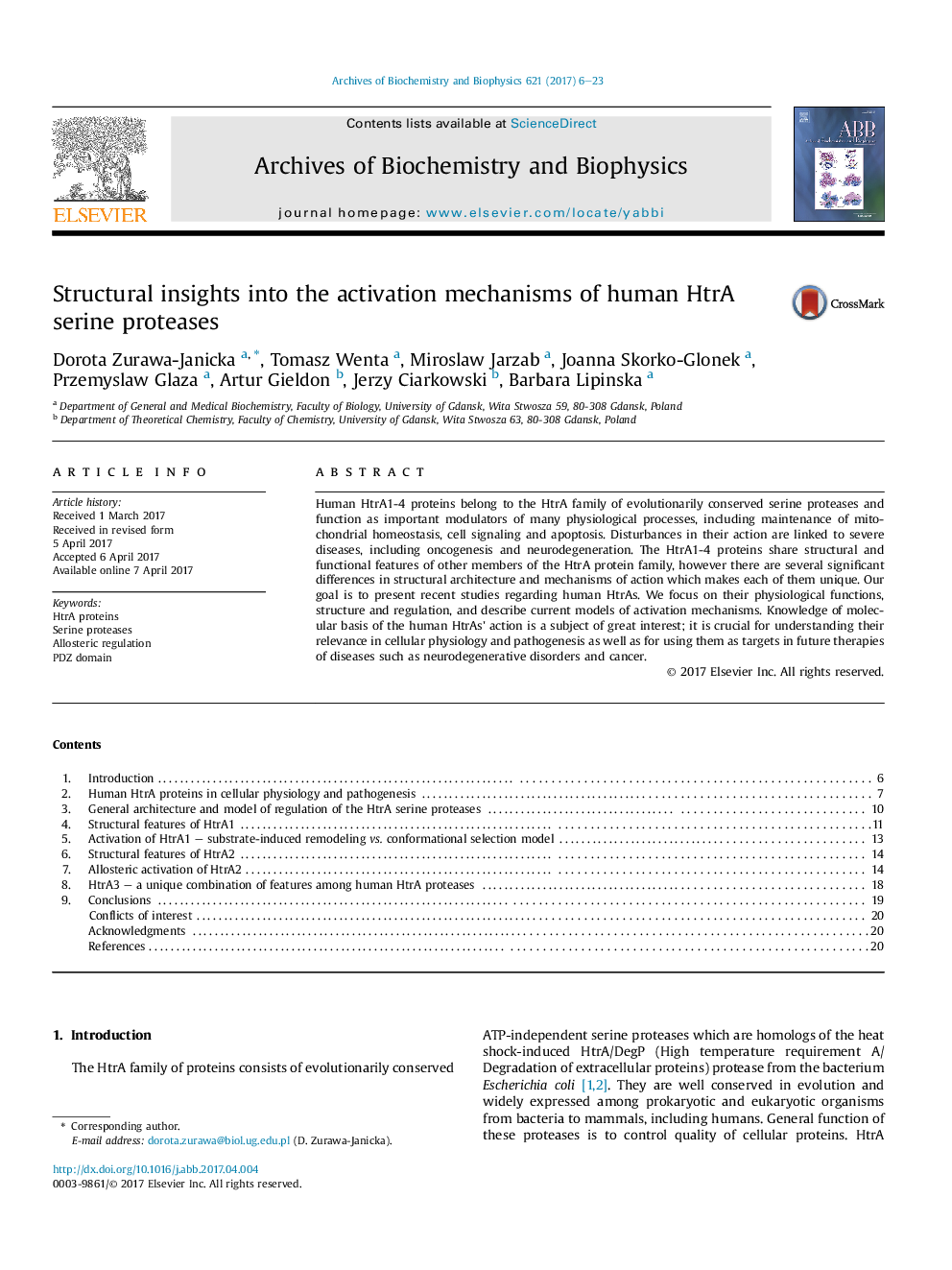| Article ID | Journal | Published Year | Pages | File Type |
|---|---|---|---|---|
| 5504379 | Archives of Biochemistry and Biophysics | 2017 | 18 Pages |
Abstract
Human HtrA1-4 proteins belong to the HtrA family of evolutionarily conserved serine proteases and function as important modulators of many physiological processes, including maintenance of mitochondrial homeostasis, cell signaling and apoptosis. Disturbances in their action are linked to severe diseases, including oncogenesis and neurodegeneration. The HtrA1-4 proteins share structural and functional features of other members of the HtrA protein family, however there are several significant differences in structural architecture and mechanisms of action which makes each of them unique. Our goal is to present recent studies regarding human HtrAs. We focus on their physiological functions, structure and regulation, and describe current models of activation mechanisms. Knowledge of molecular basis of the human HtrAs' action is a subject of great interest; it is crucial for understanding their relevance in cellular physiology and pathogenesis as well as for using them as targets in future therapies of diseases such as neurodegenerative disorders and cancer.
Related Topics
Life Sciences
Biochemistry, Genetics and Molecular Biology
Biochemistry
Authors
Dorota Zurawa-Janicka, Tomasz Wenta, Miroslaw Jarzab, Joanna Skorko-Glonek, Przemyslaw Glaza, Artur Gieldon, Jerzy Ciarkowski, Barbara Lipinska,
